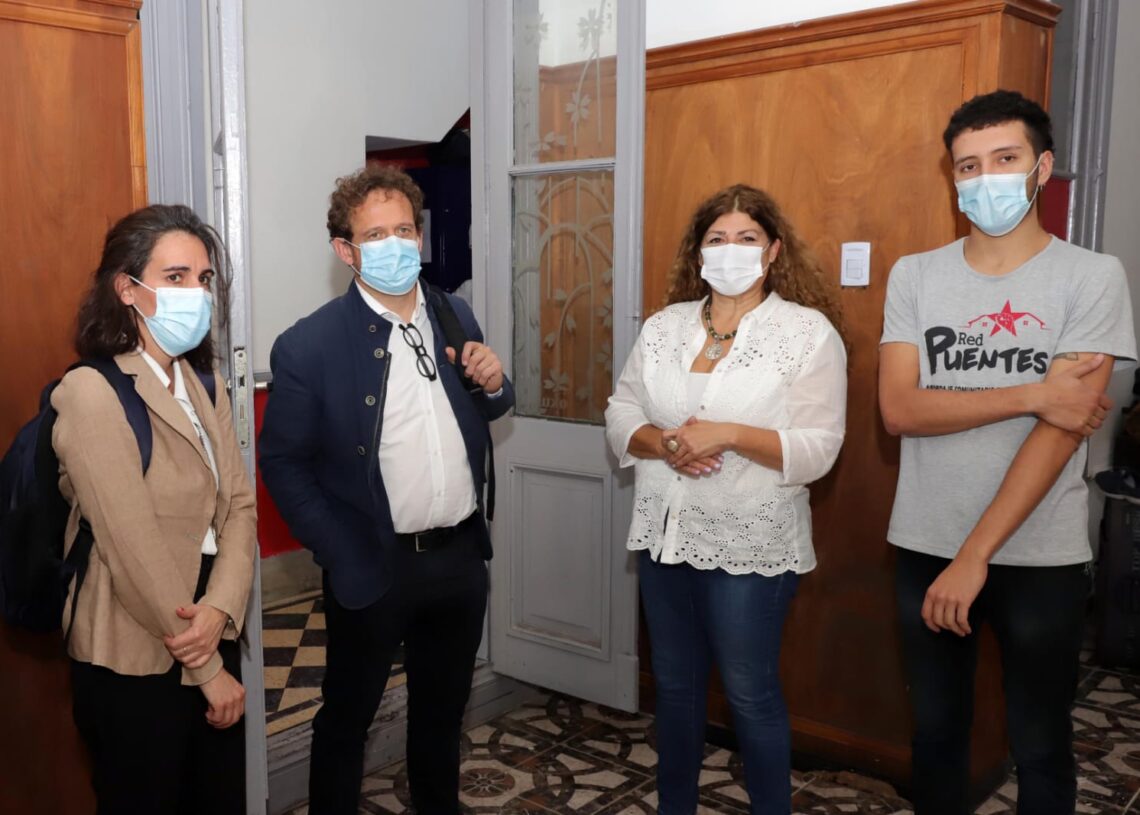Ana Cirujano, FIIAPP project technician, travels to Argentina and Uruguay to learn about the drug situation in the country and the needs of public institutions. She tells us about the programme’s field work and the need to “get out in the field” to find out about the situation first-hand and therefore be able to get the proposals right.
“COPOLAD III is a necessary programme for Latin America and the Caribbean”, is the first thing I think when setting foot on Latin American soil. It’s also necessary for Europe because it brings to the table a technical dialogue on drug policies that is not found elsewhere. What I like most about the proposal is that this dialogue is carried out delving into the complexities behind the phenomenon and from a comprehensive viewpoint that takes into account the different perspectives.
The programme is constructed like a well-balanced salad that you put in the same bowl: the need to have up-to-date data and evidence; the context and situations of the most vulnerable population, add universal public services and add a broad look at supply reduction policies. All this is aligned with the political dialogue between two regions that need to talk and work together.
A few months ago, COPOLAD allowed me to travel to Argentina and Uruguay for the first time and meet with the main actors in the national drug policy of those two countries. The idea was to support the programme in the construction of its roadmap. It was a trip that required some family logistics and I had to leave important matters waiting on my desk. The first thing was to carry out some previous planning and production steps that included: 7 meetings, 50 emails, 35 hours of work, 13 hours of travel and many hours of lost sleep.
Once there, I had the opportunity to work with the key institutional actors behind drug policy. I felt the enthusiasm of the people from the administration responsible for implementing the strategy, coordinating actors, and promoting innovative strategies.
In addition, the trip allowed me to see how these concepts, sometimes very theoretical, get through to citizens. In both countries we visited care facilities for people with consumption issues. For me, someone who usually works at a desk several thousand miles away from that situation, these exchanges infused me with energy. Above all, because although I firmly believe in the need for public technical cooperation and I am aware of the contribution my work makes, I do not have many opportunities to get out in the field and experience with other people what it means to make drug policy work.
In both it was a pleasure to meet both the people responsible for the facilities who with their commitment, drive and knowledge, set up the services; as well as with citizens who are grateful to have public support, which gives them alternatives.
Gender mainstreaming in the programme
Another issue confirmed during the trip is the importance of gender mainstreaming in COPOLAD. In fact, it is one of the lines of work that is very present in this third phase and that constitutes one of the most interesting challenges. For years, institutions have pointed out that women have been excluded from public drug policies because they have fewer addiction problems. However, when they do, their problems are much more serious. Usually in the case of men with drug abuse problems, it is their partners who push them to go to treatment facilities, but when a woman has drug abuse problems, who supports her? Who do you leave your sons and daughters with to go the facilities? What does it mean for a woman to be on the street in a consumption situation? There is much to do in this field and the trip confirmed the need to continue promoting gender mainstreaming
After the intense exchanges both with people affected by drugs and with the institutions involved, going back to my desk 8,000 miles away and to the thousands of emails, papers, contracts and pending meetings is difficult. However, I am restarting this work with renewed spirit because I know that many institutions and people, in FIIAPP, IILA, in the European Union and in the participating countries, are working hard to improve the quality of life of COPOLAD’s beneficiaries; and I know it’s worth it.






